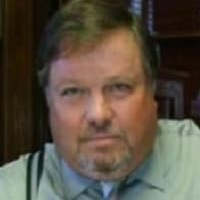Westport Criminal Lawyer, Connecticut
Sponsored Law Firm
-
 x
x

Click For More Info:
-
Andrew M Amendola, Attorney at Law
591 Thompson Avenue East Haven, CT 06512» view mapAccident & Injury, Criminal, Estate, Real Estate Where Every Client Matters
Let Andrew M Amendola, Attorney at Law handle all your legal needs today@
800-942-4780
Joseph C. Maya
✓ VERIFIEDDivorce & Family Law, Estate, Employment, Accident & Injury, Criminal
Joseph C. Maya believes in providing large firm experience but with small firm communication and attention. His practice areas of the law include divo... (more)
Raymond Alan Levites
✓ VERIFIEDCriminal, Lawsuit & Dispute, Divorce
Attorney Levites is a practicing lawyer in the state of Connecticut.
Paul Christopher Gusmano
✓ VERIFIEDCar Accident, Accident & Injury, Wills & Probate, Wrongful Death, Criminal
Attorney Gusmano was chosen for inclusion in 'Connecticut Magazine and New England Super Lawyers Magazine as a Super Lawyer in Personal Injury from 20... (more)
Antoinette R. Kaine
Labor Law, Family Law, Criminal, Bankruptcy, Personal Injury
Status: In Good Standing
FREE CONSULTATION
CONTACTFREE CONSULTATION
CONTACTLaura A. Simmons
Real Estate, Divorce & Family Law, DUI-DWI, Accident & Injury, Divorce
Status: In Good Standing
FREE CONSULTATION
CONTACTDyan M. Kozaczka
Foreclosure, Sexual Harassment, Divorce & Family Law, Misdemeanor
Status: In Good Standing
Steven David Tanzer
Collection, Criminal, DUI-DWI, Divorce & Family Law, Family Law
Status: In Good Standing Licensed: 37 Years
 Andrew Amendola East Haven, CT
Andrew Amendola East Haven, CT AboutAndrew M Amendola, Attorney at Law
AboutAndrew M Amendola, Attorney at Law



